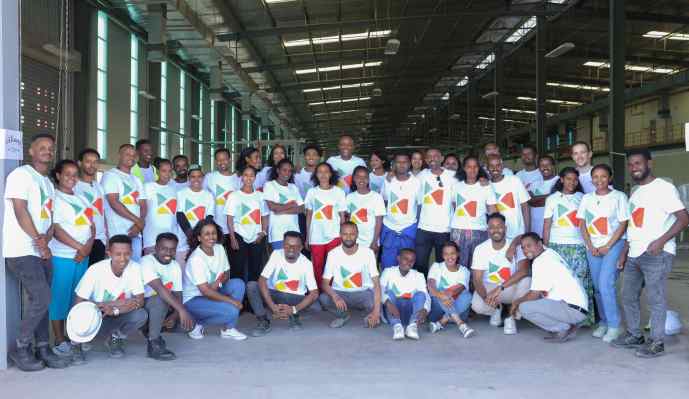
Kubik, a plastic upcycling startup, has raised a $1.9 million seed extension, months after announcing initial equity investment. The startup’s latest investment is from African Renaissance Partners, an East African venture capital firm; Endgame Capital, an investor with a bias for technologies around climate change; and King Philanthropies, a climate and extreme poverty investor.
The fresh capital comes as the startup scales its operations in Ethiopia following the launch of its factory in Addis Ababa, where it is turning plastic waste into interlocking building materials like bricks, columns, beams and jambs. Kubik co-founder and CEO Kidus Asfaw, told TechCrunch that the startup intends to double down on its operations in Addis Ababa, as it lays ground for pan-African growth from 2025.
Kubik’s approach involves upcycling plastic waste into “low-carbon, durable, and affordable” building materials using proprietary technology, which Asfaw says they will out-license for faster pan-African, and the eventual global growth.
“What we want to do is solve problems for cities and so, we’re thinking about our business model being truly circular. The way we’ve set up our business strategy, is that now we’re in the focus phase of proving this model here in Ethiopia. We’ll expand it to a few more markets to prove the diversity of the context in which this business model can work. But over time, what we actually want to do is transition to becoming a company that’s licensing out this technology,” said Asfaw, who co-founded Kubik with Penda Marre in 2021.
“That’s how we feel that we can truly scale. It’s not by having factories all over the world, but having this industry adopt a new way of making materials globally,” he said.
He said their product allows developers to erect walls without the need for cement, aggregates or steel, making the construction faster and bringing the cost down by “at least 40% less per square meter”. Cost is a key barrier in construction and the availability of affordable or cheaper building materials presents a better option for developers of affordable-housing projects.
Asfaw said Kubik’s materials have passed safety tests by the European standards agency, Intertek, which checked, among other things, strength, toxicity and flammability.
“We don’t want to be selling something that’s harmful for human beings. We did not start sales until these reports were available,” he said.
The startup currently recycles 5,000 kilograms (and can do 45,000 at capacity) of plastic waste a day. It has signed partnerships with corporates and Addis Ababa municipality for a regular supply of plastic waste. In the near-term, it is looking at product diversification to cover pavers and flooring material.
It is estimated that the world produces 430 million tonnes of plastic a year, two thirds are for short-term use. Evidently, the world is choking on plastic waste, and while the situation is exacerbated by consumerism trends in developed countries, in regions facing rapid urbanization and economic growth like African cities, plastic waste is getting out of control too, requiring urgent responses. In the coming days, startups like Kubik will play a leading role in providing sustainable solutions for the menace.